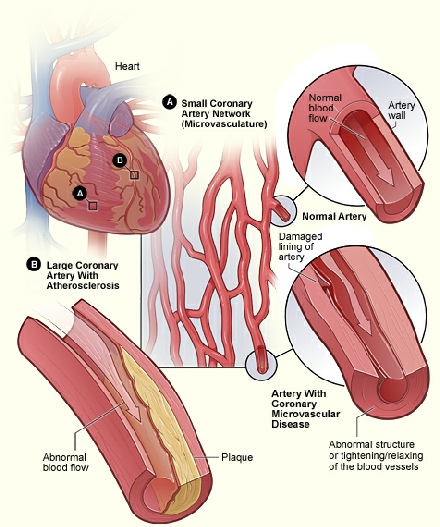DR MILES DALBY
MBBS BSc MD FRCP FESC
CONDITIONS
Angina
Angina is a symptom that occurs when the blood supply through the coronary arteries to the heart is limited by narrowing or coronary atheroscleosis, such that the supply to the muscle of the heart is inadequate.
In stable angina the blood flow to the heart is adequate at rest but on exertion the patient starts to experience symptoms such as chest pain. This is often a dull, heavy or squeezing discomfort, usually in the chest or upper abdomen and sometimes radiating to the arm or neck. Sometimes angina can manifest itself as breathlessness (sometimes called angina equivalent). Angina can however be quite variable and manifest itself in different ways. Angina usually resolves with rest or drug treatment for example a spray under the tongue (GTN). The key feature of stable angina is usually its relationship to exercise.
Anyone who thinks they may be having a heart attack or who is having an angina attack which is not settling promptly with rest and or GTN spray should seek urgent medical attention from the emergency services (by dialling 999 in the UK).
When investigating possible angina in the clinic your cardiologist will need to take history and perform a physical examination. In addition they will want to perform some tests which will often include blood tests, a chest x-ray, ECG, echocardiogram and sometimes an exercise ECG. If heart disease is suspected, a CT coronary angiogram, myocardial perfusion scan or stress echo. Following these and sometimes further tests a coronary angiogram may be necessary.
Dr Dalby will discuss these tests, their implications and any subsequent tests, treatment or follow up with you so that you may reach a mutually agreeable management plan.
